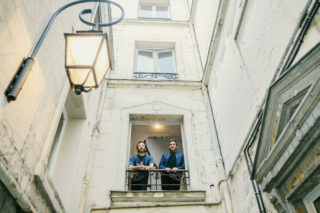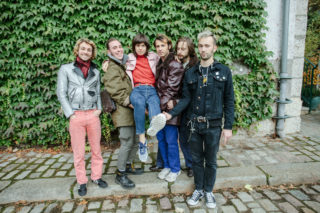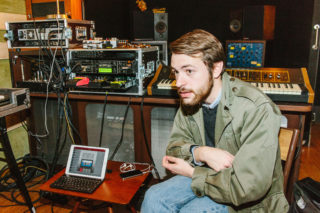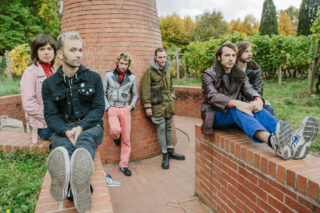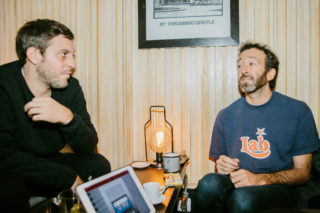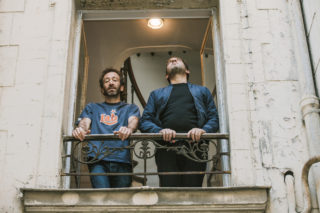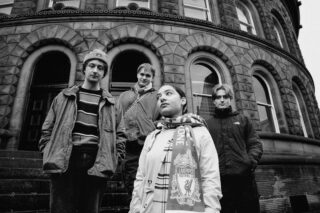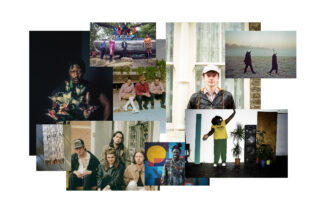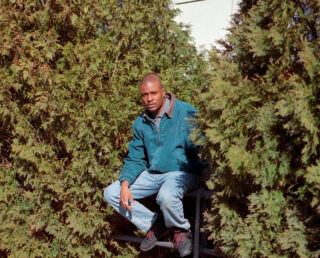It sounds like a hedonistic and cultural awakening is taking place deep into the city’s night but what is every day life like in Paris after last year’s attacks? I ask Acid Arab is there a palpable tension in the air? Both go quiet for a moment and Minisky rather cagily answers. “We don’t even think about that, we’re not at all into politics or religious questions or whatever. This is only about music and culture.”
But as citizens of Paris, I say, they must feel the impact.
“A lot of racism has emerged during the last year, but it’s not only the terrorist attacks, it’s the politics. Nicholas Sarkozy’s administration, they gave the feeling to a lot of people that they were right about fearing immigration.”
“They put the problem of national identity to the forefront,” says Carvalho.
Minisky: “They created a national identity ministry [The Ministry of Immigration, Integration, National Identity and Codevelopment of France – 2007], which thank god is now shut down but it existed”
Carvalho: “I mean, what is the national identity of a country with all this immigration? The name of our album is a response to this kind of bullshit. What we are doing is not about exoticism, or a trip or a journey, it’s about the French culture, what’s in front of us.”
Minisky: Some people may ask us, ‘have you been to North Africa to hear the music from there?’ and I say, ‘We don’t have to, we have it here.’ North African’s have built this country, whether you like it or not it’s like that. It’s very easy for some people to say today, ‘We have a nice country with freeway’s and buildings and stuff so can you please go the fuck back to your place,’ and no, it’s not like that.”
Carvahlo: “Some of these people have been here for three or four generations, they are born and raised here and their culture is part of this country as well. It must be awful for someone whose father has been born in France and they are born in France and they grow up in France and then when you go somewhere they ask you were you are from. It’s like asking an African American each time you see them, ‘which country are you from?’ You know, they are more French than you maybe.”
I ask how do they feel about the future. Are they hopeful that racial tensions will subside?
“It’s really touchy,” Carvahlo says. “I think things are going to get worse than now, for sure, but to which point things will go, I don’t know. It’s going to be worse; we are just in the beginning of something really violent.”
Whilst it’s clear that Acid Arab are a group that promote a multi-cultural Paris and all the forces the music can bring as a result, how much of this collision, I wonder, takes place in the city? I mean, are their gigs and parties as racially integrated as their music?
“Certainly not,” Minisky says, rather sadly. “Maybe after one year of us playing as Acid Arab we had this opportunity to have a party at the Arabic Institute in Paris and for this party there were pre-sale tickets and before that we had party’s in clubs where people showed up and they got in or not, and so that night we had a lot of Arabic people there. It’s not a good term to use but people with Arabic roots, I mean, and we really had a lot there, like 50% of the people and a lot of people came up and said, ‘Ah, great we finally get to see you.’ We were like, ‘We’ve played this place and this place,’ and they said, ‘We cannot go to these places, when we arrive at the door they say, ‘no, not you.’”
The group are keen to now do more pre-sale ticket shows to expand the diversity of their audience, which in the wake of their debut album has no doubt expanded further through their widespread variety of guests, such as the Syrian dabke player Rizan Said, the Algerian singer Rachid Taha, the Turkish composer Cem Yildiz (also a member of Insanlar) and various other musicians. The resulting collaborations on the debut lead to an album that hums with the vibrancy and diversity of the city streets you walk around near their studio and sparks with the life and energy of the nightlife they are so deeply immersed in. For Acid Arab, and everyone else I speak to whilst here, the sound and identity of France and Paris is not captured and projected in the rising rhetoric of the likes of the National Front but in the multicultural heart of the place that beats louder and funkier than the drum of hate and intolerance.




